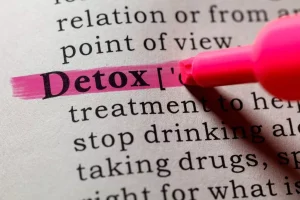
Also, services for adults should take responsibility for patients’ children in order to prevent the children from developing problems and to build cross-sectoral community-based services for families with multiple needs. Knowing the impacts of parental alcohol abuse on children and family dynamics can provide a better understanding of the challenges faced by families affected by addiction. Addressing these issues head-on with appropriate treatment and support can lead to healthier outcomes for all family members. It is also important to focus on possible buffering factors that protect the child from the adverse effects of parental alcohol abuse.
Data and methods
The mother’s severe alcohol abuse increased the children’s risk of all categories of disorders except F8. Also, less severe alcohol abuse in mothers increased the risk of disorders in category F9. Among fathers, less severe but not severe alcohol abuse increased the risk of children’s disorders in category F9. In addition to aiming for reducing alcohol consumption in the entire population, interventions targeted at parents with children in all age categories are important in preventing alcohol’s harm to children. Psychological and/or educational interventions for reducing alcohol consumption have been shown to result in increased abstinence from alcohol and a reduction in alcohol consumption among pregnant women [43]. Psychosocial interventions aimed at substance-abusing mothers have also resulted in positive effects on child-related outcomes, on mothers’ abstinence and mental health and on parenting attitudes and behaviour [44].
Alcoholism Thiamine Deficiency: How to Recognize and Address This Hidden Health Risk

Meanwhile, inpatient programs offer round-the-clock medical support and supervision. Children are resilient, and many can bounce back after exposure to trauma early in their lives. However, growing up with an alcoholic parent is one of the most difficult challenges to overcome.

Understanding alcohol and substance use disorder
This inability to control alcohol use can cause individuals to not meet their obligations at work, home, and school. When a parent has an AUD and can’t meet their responsibilities, there can be negative effects for the child that can last into adulthood. There is a growing interest in measuring alcohol’s harms to people other than the drinker themselves. ‘Children of alcoholics’ and foetal alcohol spectrum disorder have received widespread attention. Less is known about how children are affected by post‐natal exposure to parental drinking other than alcohol abuse/dependence. In this scoping review, we aim to assemble and map existing evidence from cohort studies on the consequences of parental alcohol use for children, and to identify limitations and gaps in this literature.
Poor School Performance
They learn to bury their feelings and struggle to express themselves in healthy ways. There’s a genetic component, and growing up in a household with an alcoholic puts you at risk for many issues. But that doesn’t mean children of alcoholics are sentenced to the same disorder as their parents. Growing up with an alcoholic parent can greatly affect a child’s mental health.
Limitations and gaps in the literature
- That said, it’s important to recognize that behaviors resulting from this illness can have a negative impact on loved ones.
- This could be related in part to the behavior issues among children of parents with an AUD.
- As such, a wide range of individual and family therapy options are available through American Addiction Centers (AAC).
- This early alcohol exposure can significantly impact their emotional, cognitive, and social development, often carrying into adulthood.
- A Finnish study found that in substance abuse treatment contexts children of substance-abusing parents are seldom met in person, and their needs are rarely considered [11].
Therapists and other mental health professionals with experience dealing with addiction can help. For example, children of alcoholics tend to feel as though they never had a childhood of their own. They never experienced the carefree and safe feelings most people remember when they were children. ACoAs may face a unique set of challenges, including increased risk for substance use, mental health disorders, difficulties in forming healthy relationships, and challenges coping with unresolved trauma or emotional distress. This review included only prospective cohort studies, which provide a stronger basis for assessment of causality in relation to the observed associations than other observational epidemiological designs. The exhaustive search for, and examination of, all published literature in this area is a clear strength of this study.
- They may spend their lives avoiding conflict or confrontation of any kind, worrying that it could turn violent.
- While these numbers can seem daunting, there is an extended network of people with shared experiences who are available for support if you need it.
- These dysfunctional family dynamics and trauma exact a heavy psychological toll on the child, who may respond to these stressors in different ways.
- Children of alcoholics are more anxious and insecure because of the lack of parental attachment.
Where can adult children find support?
An alcohol use disorder (AUD) affects not only the user but can also affect the people in the user’s life. Because addiction is a family disorder, spouses, siblings, parents, and children also experience the consequences how alcoholic parents affect their children of an AUD. Drinking alcohol has very little stigma and is often synonymous with social activities. The social acceptability of alcohol makes it easy for some to develop dependencies on or addictions to alcohol.

Taking care of or rescuing others even when it hurts you

Children of parents who misuse alcohol are at higher risk for anxiety, depression, and unexplained physical symptoms (internalizing behaviors). They are also more likely to display rule-breaking, aggressiveness, and impulsivity (externalizing behaviors) in childhood. Although evidence is conflicting, some behavioral changes appear to occur in children, adolescents, and adults who had a parent with AUD. Although https://ecosoberhouse.com/ the roles of genetics and childhood experiences are intertwined, these children may be more susceptible to substance use and other issues. Children whose parents use alcohol may not have had a good example to follow from their childhood, and may never have experienced traditional or harmonious family relationships. So adult children of parents with AUD may have to guess at what it means to be “normal.”
